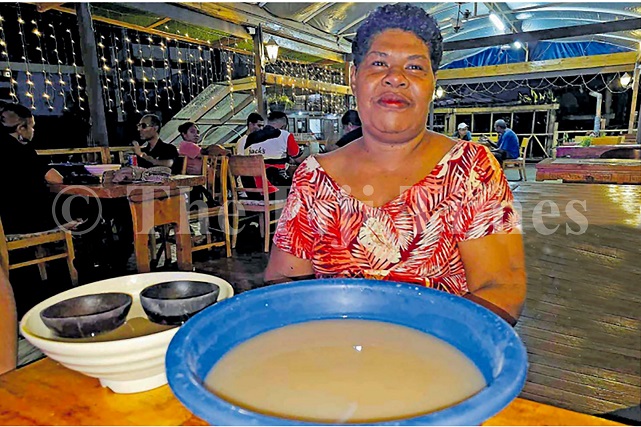New Zealand academic and kava researcher Dr Apo Apolosa has raised his concerns on the recent revelation by The Fiji Times of an American group that has reportedly produced the first American-grown kava in Florida.
Dr Apolosa had raised (via email) his concerns reflecting the views that is held by a lot of Pacific islanders on this new American kava.
Below is the continuation of his views from yesterday’s edition: ‘Value added’ is also being promoted by suggesting kava extracts are necessary to grow the industry.
This is also accompanied by propaganda that there is ‘big bucks’ to be made by Pacific kava farmers.
However, what needs to be understood is that buyers purchase less kava because for extract processes uses organic solvents that strip more kavalactones from small amounts of raw material.
Additionally, the extraction process occurs overseas, not in the Pacific.
Therefore, the only “value added” is to the pockets of the ‘culture industry’ and not the farmers these ‘culture industrialists’ say they support.
Our Pacific leaders need to take note of what is really going on here.
Recent history is littered with tales of indigenous resource owners being promised riches by flaky philanthropy-speaking ‘culture industrialists’.
All that happens is the filling of their bank accounts, with the resource owners left high and dry and minimal financial gain.
This appears to be unfolding before our eyes, right now, with big promises being made by businessman about the benefits Pacific kava farmers will reap.
They also speak and write about respecting kava, mention kava’s cultural significance, but this is simply to create an ‘exotic other’ image to sell product.
Let’s get real here, if those in the ‘culture industry’ really respected the Pacific and our Pacific kava growing families, they wouldn’t be taking away one of our limited sources of income, our cultural keystone species, and growing it in their non-Pacific nation.
Nor would they be speaking about unnecessarily flavouring kava using disingenuous ‘value added’ speak, with this simply a front (in many cases) for ‘hiding’ addictive and dangerous substances such as kratom.
Do we Pacific people just roll over and allow this to happen? Concerning the potential of adding kratom to powdered and bagged kava: kratom is difficult to detect without the use of expensive specialist tests.
So, what really is in the bags of kava shown in Saturday’s ‘Americans launch own kava’ story in The Fiji Times?
We don’t know, but as Mr Bowman stated in the Bloomberg article, “kava establishments wouldn’t survive without also offering kratom”.
I have raised questions online regarding the legality of adulterating kava with kratom together with the ethics of growing kava in non-Pacific spaces. Instead of responding to these questions, diversionary tactics have been employed by persons in, and associated with, the American Kava Growers Group in which my character and mental stability have been attacked and my iTaukei ancestry questioned.
Again, I ask the question of these people, is it ethical to add addictive kratom to safe kava? Is it also ethical to take kava from the Pacific, and from small-scale kava farmers who rely on this to feed their families etc and commercially grow it in non-Pacific nations for financial gain?
The Pacific has already experienced economic fallout from the manipulation and adulteration of safe kava in the early 2000s via the European Kava Ban.
This latest form of kava adulteration (with substances like kratom), and I would also suggest the growing of kava outside of the Pacific, has the potential to initiate a second ban.
The power to speak to this matter now lays with our Pacific leaders.
Potentially this topic can also be debated at the upcoming Pacific Islands Forum Secretariat and the Pacific Community (SPC) workshop in Nadi (March 25 – 28, 2024) in which matters such as the “geographical indication for kava” will be discussed.
If our Pacific leaders ignore the growing of kava in non-Pacific space and the adulteration of safe kava with addictive substances, failing to push back at the highest level, we not only face the potential of a second kava ban but also a future in which non-Pacific kava culture industrialists’ could flood the markets with unsafe addictive kratom-kava while also exporting kava back to Pacific kava growing nations and further threaten any hope of economic development.



